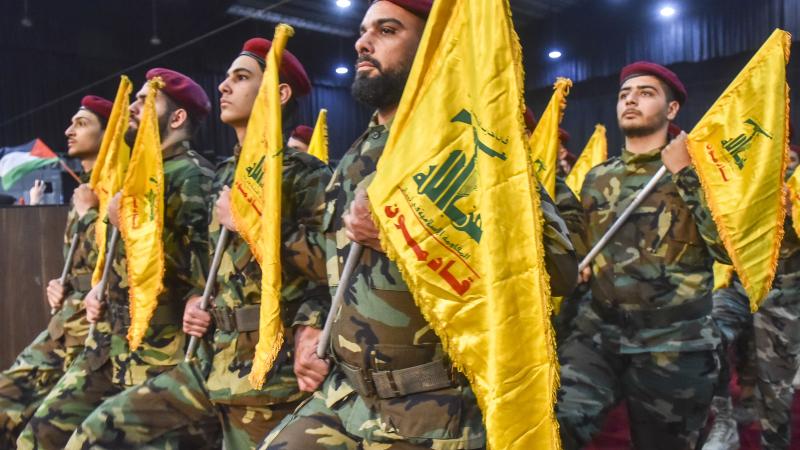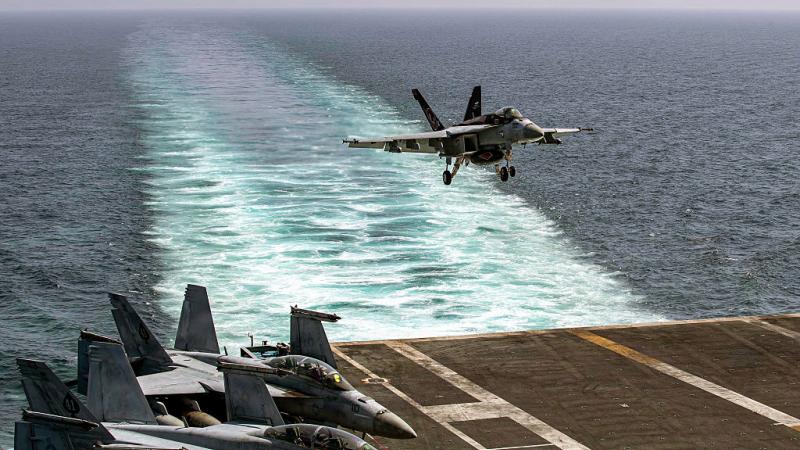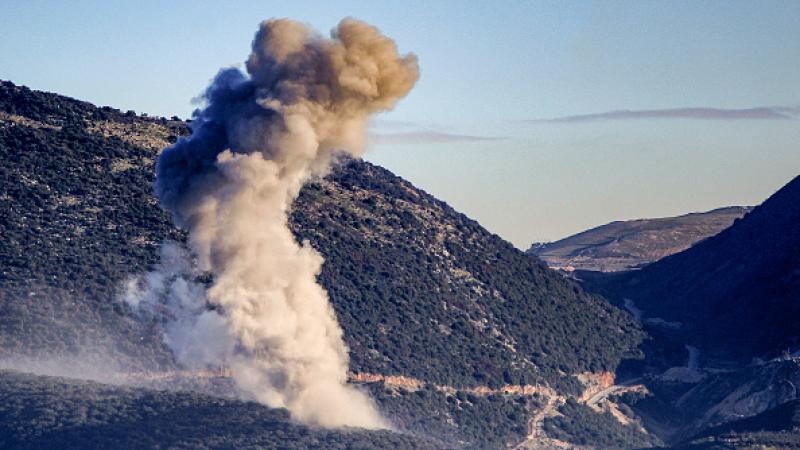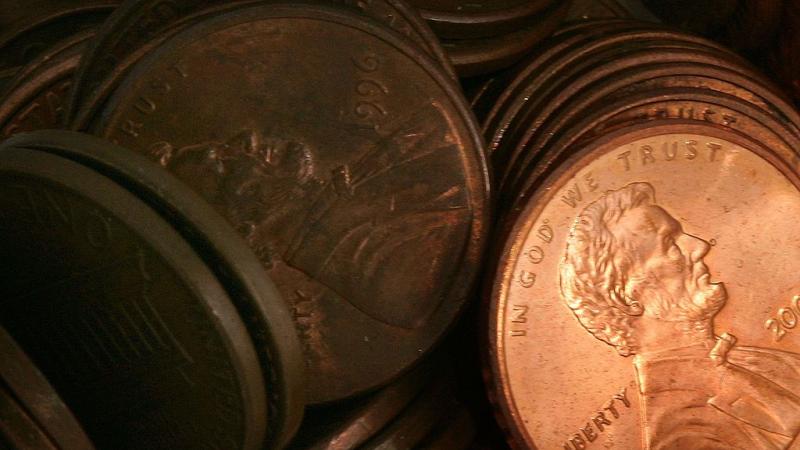Vital US ally, tacit terror supporter or oil-fueled people pleaser? Determining Qatar's endgame
Qatar has used its advantageous position, gained through lucrative oil drilling, to become a prominent player on the global stage.
Despite hosting the largest U.S. military base in the Middle East, donating billions to American universities, harboring extremists, funding Al Jazeera and most recently being connected to a United States senator's foreign lobbying charges, Qatar's influence has long been overlooked compared to that of larger players such as China, Iran and Russia. But the focus may be shifting given recent events involving the Gulf nation.
Though Qatar has less land than the state of Connecticut and a population of only about 2.8 million, about 300,000 of whom are actually Qatari citizens, the wealthy Gulf nation has a higher GDP per capita than the United States, according to the International Monetary Fund.
Qatar has used its advantageous position, gained through lucrative oil drilling, to become a prominent player on the global stage and, at times, to walk a diplomatic tightrope.
"Qatar is the only country in the world with a constitution that mandates mediation in international conflicts," a Qatari diplomat told Just the News. "Over the past 25 years, we have successfully mediated between governments and groups in places such as Libya, Eritrea, Darfur, as well as between the U.S. and the Taliban, the U.S. and Iran, and more recently between Russia and Ukraine.
"Qatar’s focus has always been on promoting dialogue, keeping channels of communication open, and supporting long-term solutions to conflicts around the world."
Qatar controls 11% of the world's proven natural gas reserves, per the U.S. government, and it is in a unique situation in that it shares the world's largest gas field with Iran in the Persian Gulf. This forces the two nations to have a working relationship despite Iran's well-known status as a global terror financer.
"Qatar is a small country with huge natural gas wealth in a dangerous neighborhood. Inevitably it tries not to have enemies," Simon Henderson, a Gulf and Energy Policy expert at The Washington Institute think tank, told Just the News.
The country's delicate diplomacy is fully on display in its seemingly comfortable relations with more notorious actors.
Though Qatar did not recognize the Taliban when it first ruled Afghanistan from 1996 to 2001, it did have cordial relations with the group at the time. Eventually, Qatar hosted Taliban leaders with the goal of peace negotiations and it even allowed the Sunni Islamist nationalist group to open an office in Doha in 2013.
Hamas, a U.S.-designated foreign terror organization that is funded by Iran, opened an office in Doha in 2012.
Since then, top Hamas leaders have spent years living in Qatar. However, Qatar’s ambassador to the U.S., Meshal bin Hamad Al Thani, said in a Wall Street Journal op-ed in October after Hamas terrorists invaded Israel that Doha originally only allowed the office to open in response to a request from the U.S.
"The presence of the Hamas office shouldn’t be confused with endorsement but rather establishes an important channel for indirect communication," Al Thani wrote at the time.
Qatar has also put hundreds of millions of dollars in donations into Gaza since 2014. But Al Thani and other Qatari diplomats have stressed that the aid is for the Palestinian people and distributed in coordination with the U.S., Israel and the United Nations.
While Qatar has denied having prior knowledge of Hamas' Oct. 7 attack, which resulted in the deaths of about 1,200 people, some Western intelligence officials have said there are indications that the Gulf nation may not have been completely in the dark, according to Politico.
Qatar's questionable connections led to a diplomatic crisis in 2017 when Bahrain, Egypt, Saudi Arabia, the United Arab Emirates and Yemen severed ties with Doha for allegedly destabilizing the region by supporting Iran-backed terror groups.
The crisis concluded with a deal between Qatar and Saudi Arabia in early 2021.
Having relations with questionable actors has led to some international benefits, with Qatar serving as a mediator between the U.S. and the Taliban and, more recently, between Israel and Hamas.
Although the Gulf nation may seem cozy with questionable entities, Qatar is still close with the West and even hosts the largest U.S. base in the Middle East with Al Udeid Air Base. Earlier this month, Washington reportedly reached an agreement with Doha to operate the base for another 10 years, according to multiple news reports.
"Qatar’s key ally is the U.S., which protects it both from potential enemies like Iran, and rivals like the UAE," Henderson said.
The relationship may be mutually beneficial for the security of both countries.
"Qatar currently serves as the United States' 'protecting power' in Afghanistan, and in 2022, the U.S. designated Qatar a 'major non-NATO ally,'" the Qatari diplomat said.
Not only is Qatar militarily close to the U.S., but the Gulf nation, like other countries, also tries to sway American policy in its favor.
The government of Qatar has spent at least $79 million since 2016 on U.S. lobbying, according to OpenSecrets. Several prominent political figures, ranging from Democratic New Jersey Sen. Bob Menendez to former Brookings Institution President John Allen have been investigated for allegedly not registering as foreign agents of Qatar.
Qatar also uses soft power in more indirect ways, such as through education and the media.
Since 2007, Qatar has donated $5.4 billion to U.S. universities, with $1.6 billion of that given since June 2020, according to the Education Department. U.S. schools with campuses in Qatar include Arkansas State, Carnegie Mellon, Georgetown, Northwestern, Texas A&M, Virginia Commonwealth and Weill Cornell Medicine.
The schools, some of which have been in operation for more than two decades, all operate completely independent of Qatar, according to a diplomat from the Gulf nation.
An American academic has moved to Qatar since the Oct. 7 attack on Israel, after the Education Department opened an investigation last year into George Washington University over alleged antisemitic conduct by psychology Professor Lara Sheeh. The Algemeiner reported earlier this month that she left the school to teach at a Qatar-based institution.
Qatar further wields its influence through its funding of Al Jazeera, the Arabic- and English-language TV news networks.
The Al Jazeera Media Network is the largest news network in the Middle East and North Africa region, which the Council on Foreign Relations said gives the nation an "influence far greater than what a country of its size could usually expect."
The Gulf nation's influence efforts appear to have not stopped U.S. politicians from lobbying Qatar themselves.
After members of Congress visited Qatar earlier this month, Iowa Republican Sen. Joni Ernst said she and other lawmakers told Qatar to "use whatever leverage they have" to convince Hamas to free the hostages in its war with Israel to "maintain" relations with the U.S.
"I literally told him, 'Americans are pissed off,'" Ernst said about her conversation with Qatar Prime Minister Mohammed bin Abdulrahman bin Jassim Al Thani, according to The Jewish Insider. "They have hosted Hamas in Qatar – sometimes at the behest of various administrations along the way. But these are terrorists. They murdered Americans. They are holding Americans… [Qatar needs] to leverage those ties to get our Americans back."
Ernst said she is unsure how Qatar will respond to the message, but the Qatari diplomat expressed optimism regarding the Gulf nation's relationship with the U.S.
"Qatar continues to strengthen its strategic partnership with the United States across a range of areas, including international security, counterterrorism, and humanitarian aid," the diplomat told Just the News. "Qatar is working closely with the US and its regional partners to secure the release of the remaining hostages."
After brokering a temporary ceasefire in November that led to the release of more than 100 hostages held in Gaza, a New York Times report emerged last week about Qatar again back at the negotiating table for a potential deal that would force Hamas to bring vital prescription medications to hostages in exchange for Israel allowing more medicine into the strip for Gazan civilians.















